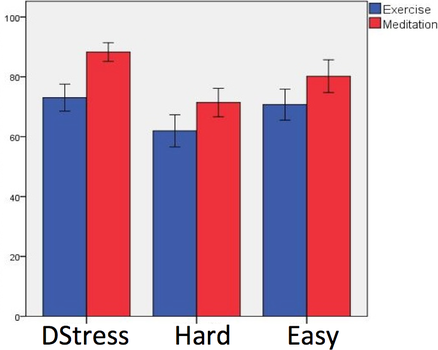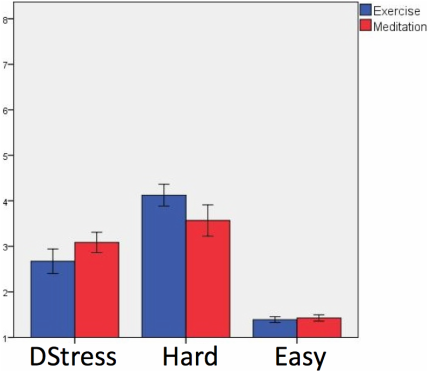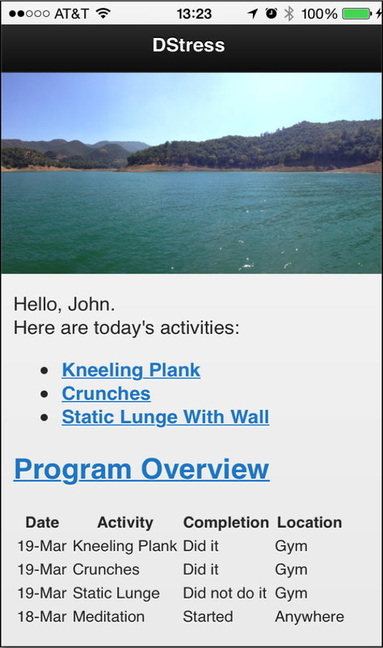DStress Adaptive Wellness Coaching App (with Artie Konrad, 2013)
Apart from my intern, Artie, who did the lion's share of the work in a heroic effort (this was a highly complex project), other PARC staff members played invaluable roles in this project; Simon Tucker developed the adaptive back-end adaptive system behavior, Les Nelson wrangled coaching content, and Pete Pirolli provided additional guidance and advice on data analysis.
|
We designed DStress, an adaptive app offering de-stressing activity coaching guidelines. It could just as easily have been fitness or diet coaching, however, stress was chosen based on survey of PARC employees’ top health concerns. We had two dimensions of adaptability; accessibility (high=gym, low=anywhere) and difficulty (effort/strength required to perform an activity; as rated by expert trainers). In a one-month study, 65 participants joined one of three groups. The “Easy” group got low difficulty activities they could do anywhere. The “Hard” group got activities that were quickly increasing difficulty. The “DStress” group got activities that were adapted depending on completion of activities (i.e., became more or less challenging). |
The bar charts show data for exercise (blue) and meditation (red) compliance and difficulty level attained for both exercise and meditation. DStress users were more compliant (or equal in compliance to Easy group) and achieved more difficult level of activity, from which they would benefit more; i.e., more strenuous exercise and longer meditation. Conclusion: adaptive coaching is more effective at assisting people in compliance and in making greater progress. This work was led by my intern, Artie Konrad, and contributed to the Fittle project at PARC. Draft publication available |


